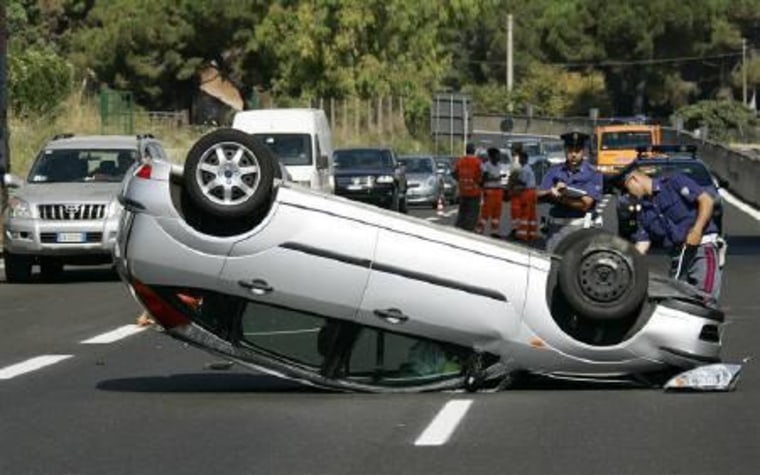Imagine a fully loaded jumbo jet falling from the sky. Now imagine that happening every single week. That’s the level of carnage on American highways where the death toll surged upward by nearly 8 percent in 2015 after a decade’s decline.

But here’s a very different scenario: Imagine an era when highway fatalities are rare, perhaps entirely eliminated. That’s the goal laid out last week by U.S. safety regulators who believe that is entirely possible with the emergence of autonomous vehicles and other smart car technologies.
“Every single death on our roadways is a tragedy,” said Mark Rosekind, chief of the National Highway Traffic Safety Administration. “We can prevent them. Our drive toward zero deaths is more than just a worthy goal. It is the only acceptable goal.”
Worthy, indeed, say most experts, but is it achievable? Can all highway deaths be eliminated? Even if the number doesn’t reach zero, however, the consensus appears to be that the vast majority of highway crashes, injuries and fatalities could be eliminated within the next few decades.
Zero fatality roads within our lifetime
While it might seem likely to expect government bureaucrats to set such a difficult target, a number of industry leaders have also laid out a goal of zero fatalities, including Nissan CEO Carlos Ghosn.
“Today, the automobile finds itself at a significant turning point,” Nissan CEO Carlos Ghosn wrote in an op-ed for the 2014 World Economic Forum in Davos, Switzerland. “With the help of policy-makers providing clear regulatory oversight, (new) technologies could lead to ‘zero fatality’ roads within our lifetimes.”
In fact, while NHTSA and the U.S. Department of Transportation believe it will take 30 years to achieve its target, Swedish automaker Volvo says it is aiming for zero deaths in any of its new products built after 2020. The carmaker, long noted for its focus on safety, last year opened a new research and test center specifically focused on eliminating crash fatalities.
Highway deaths peaked in 1972, at 54,589. With new safety systems like airbags and three-point belts, along with efforts to improve roads and crack down on drunk driving, the numbers fell to a low point of around 32,000 early this decade, a decline of around 40 percent, before climbing back to 35,092 last year.
Those numbers actually understate the transformation, as Americans today drive far more miles than they did four decades ago. In 1964, there were 5.39 fatalities for every 100 million vehicle miles traveled, or VMTs. That dipped to just 1.10 in 2013, the lowest figure ever recorded.
Technology is driving the change
Getting drunks off the road has helped, but new technologies have been responsible for some of the biggest improvements in recent years. Electronic stability control, for example, has cut the number of deaths in single-car crashes by half, noted Jessica Cicchino, director of research for the Insurance Institute for Highway Safety
Reaching for a goal of zero, “a lot of it is going to come from smart cars,” she added, especially with the advent of fully autonomous and even driverless vehicles. But not all the solutions will be high-tech. Roundabouts have been shown to reduce crashes at intersections, for example, and the IIHS is pressing states to roll back speed limits. The insurance trade organization claims 33,000 people have died since federal maximums were eliminated 20 years ago.
Accidents happen
There remain plenty of skeptics, including some within the safety community, like Amnon Shashua, found and chief technology officer at Mobileye, an Israeli-based company whose artificial vision technology is used in a number of smart car systems now on the road, as well as autonomous vehicle prototypes.
“Zero accidents will never happen,” he cautioned in an interview earlier this year. There will be trees that fall on passing cars in a storm, sinkholes that open up in a roadway, and other unpredictable events. That said, even if improved roads and vehicles can only reduce fatalities by “three orders of magnitude,” the impact would be substantial, perhaps 350, rather than 35,000 deaths a year.
The reality is that we may always suffer some highway fatalities, acknowledged IIHS research chief Cicchino, but, “it’s not acceptable to have anyone die on our roads, so we shouldn’t accept a number any higher than zero.”
And, for the first time since Henry Bliss became the first American known to have died in a car crash on September 14, 1899, the idea of truly death-free highways seems a tantalizingly real possibility.